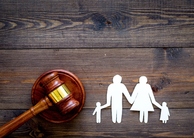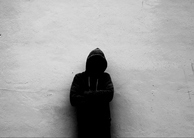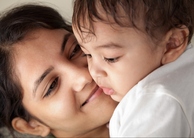Coming Out and the Transition to Adulthood in LGBQ Youth
By
2016, Vol. 8 No. 04 | pg. 1/2 | »
IN THIS ARTICLE
KEYWORDS
AbstractThe transition to adulthood in the lives of non-heterosexual youth may offer rich information regarding the criteria youth utilize to measure their achievement of adult status. Yet LGBQ youth experiences and the transition to adulthood have not been brought together in formalized research. This study is based on a small number of in-depth interviews with LGBQ youth. Two major themes appeared in all the interviews. The first relates to socio-cultural factors that surrounded the youth before and at the time of coming out, which shaped the method and tone of each participant’s coming out as well as their relationships with close family members. The second theme deals with the common perception among all three participants that interdependence of various forms is a salient subjective marker of adulthood. The transition to adulthood, typically characterized as the period between adolescence and adulthood in which youth gradually assume the roles and responsibilities of their adult life, is a relatively new field of study. Much of the research about the transition to adulthood (TTA) is localized in the twentieth century and focuses on the five traditional markers of adulthood: graduating high school (and nowadays increasingly college,) leaving the parental home, starting a career, getting married, and having children (Shanahan et. al., 2004). The discussion of these five steps often revolves around how their timing, spacing, and order have and will change as time passes. One of the major findings to come out of TTA research is that the transition to adulthood is becoming more prolonged, and that it is financially more and more difficult to attain some of the five traditional markers such as moving out of the parental home and obtaining a stable job.The transition to adulthood is becoming more prolonged as many of the traditional markers of adulthood, such as moving out of the parental home and obtaining a stable job, become harder to attain. As a result of recent changes in how young people choose the steps they take into adulthood, research is beginning to look away from exclusively marker-based conceptualizations of transitions to adulthood and toward alternative definitions of adulthood that emphasize subjective markers of adulthood, such as emotional maturity and social responsibility (Shanahan et. al., 2004). For example, the detailed ethnography contained in Edin and Kefalas’ 2011 book Promises I Can Keep: Why Poor Women Put Motherhood Before Marriage, investigates the relationship between objective, traditional markers of adulthood like marriage or motherhood and their subjective consequences, like learning to be attuned to the emotional needs of another person. McNamara et. al. (2009) also investigate subjective markers of adulthood and conclude that romantic qualities of relationships are significantly associated with feelings of having ‘achieved’ adulthood. The maintenance of romantic relationships can be associated with having ‘achieved’ adulthood Nevertheless, there is still a dearth of research on LGBQ youth who are transitioning into adulthood and this study aims to contribute to the growing interest in connecting research on other aspects of LGBQ youth with TTA specifically. Currently there is quite a lot of research about the effects of social environments and peer culture on the wellbeing of LGBQ youth, such as Needham et. al.’s (2010) study linking poor social and familial support with poorer health outcomes such as higher rates of alcohol abuse and depression; there are also studies on the effects of coming out on parents of LGBQ youth, and how parents’ own support groups can help or hinder the family’s adjustment to the change (Saltzburg, 2009). There is, however, not much linking research in these areas of social or parental support and health-related consequences to how LGBQ youth experience the transition to adulthood differently than their straight peers. Moreover, the actual process of coming out and its subsequent effects on subjective markers of adulthood (like beginning to determine one’s own identity independent of parents) has not been extensively studied. Through the analysis of three interviews of LGBQ youth regarding their sexuality and their coming-out, the present study explores the connections between previously-studied LGBQ youth phenomena such as socio-cultural support and personal definitions of adulthood, and how both of these affect or are affected by the youths’ public revelation of their sexual identities. MethodologyIn coordination with Barnard College of Columbia University, participants for this study were recruited through the circulation of flyers in print and online calling for people aged 18-29 who identify as gay, lesbian, bisexual, or queer, and who live in the NYC/NJ metro area. The fliers also had information about the nature of the study and the topic that was being investigated, i.e., the transition to adulthood as an LGBQ person. Two of the interviews analyzed here were conducted in person in public spaces (cafés) while the third was conducted over Skype. Participants signed a consent form before the interviews, and were assured that all collected information would be confidential, and identifying information would be redacted in any published work. The participant in the first interview, Lucy,[2] is a 23-year-old caucasian cisgender woman who identifies as pansexual and queer. She has a four-year college degree, currently holds part-time jobs, and lives in Brooklyn with roommates. The second interviewee, Amel, is a 26-year-old Arab cisgender woman who identifies as gay. She has a Master’s degree and is currently a freelance mediator. She lives in Brooklyn in a studio apartment by herself. The third interview was conducted over Skype with Angela, a 25-year-old caucasian cisgender woman who identifies as somewhat androgynous and a lesbian. She has a four-year college degree and currently works as a cook in Boston, where she lives in a house with three roommates, including her girlfriend. Interview FindingsThe three interviews yielded two major themes: one relating to the socio-cultural environment and social support surrounding the participant (both at present and at the time they came out) and the other relating to a perspective that responsibility through the lens of interdependence is a salient subjective measure of adulthood. The findings are sorted by themes and subthemes. Socio-Cultural and Sexual Environment Among Peers and FamilyWithin the first theme, there seem to be some prevalent sub-themes having to do with the dominant sexual climate surrounding the participants during the time they came out, both in their families and peer groups. From what was expressed in the interviews, this socio-cultural environment is primarily characterized by the presence or absence of other out, non-heterosexual peers in their environment, and how normalized their orientations were by these peers. The other dimension of the participants’ socio-cultural environments is how each participant anticipated that particular family members would react to their coming out. Interestingly, in two cases coming out to family was preceded by a certain amount of anxiety, hesitation, and planning, while in the third case, there was a lack of anxiety regarding coming out to family. The anxiety seems to be linked to each participant’s assumption of how much socio-emotional support they would receive from family members and how much their sexuality would be validated,but interestingly not to the parents’ actual reactions and demonstrations of support. Dominant sexual climate at time of coming outLucy currently identifies as pansexual, but initially came out to her mother as bisexual around her freshman year of high school. She describes being explicitly made aware of non-heterosexual identities, as well as her own feelings towards people of the same sex, when she entered high school: “So I went to an arts high school and that was kind of the first time that I was made aware that bisexuality is a thing, and I was like "Ohhh what? Oh this is cool, that explains a lot!" I just kind of knew... that I didn't really recognize the feelings I had towards… uhhh… women, until high school. It was something that I'd experienced when I was younger but I think I suppressed a little bit” (10) Something to note is that there was some experience and noticing of attraction toward the same sex before her exposure to the language and specifics of the LGBTQ world. When asked about when she first felt she was not straight, she described what she would later realize was her first encounter with her non-straight feelings: “Well, probably from when I was about 9 and would do these… like (giggles)… games with this friend of mine that just involved us being in our underwear and being silly and I was attracted to her. That's when I first started, I guess, having sexual feelings” (12) It was during college that she managed to properly reconcile this experience with her still-developing sexuality: “I didn't really put that anywhere and I kind of felt very ashamed of that for a really long time. Up until I was about 20 and realized that most girls I knew who identified as gay had that experience with a friend of theirs when they were really little. And as I got older I was like, "Ok, that was actually, probably a formative experience in my sexuality that I repressed for many years” (12) So while she was somewhat familiar with feelings of same-sex attraction, her acculturation to the LGBTQ community in high school seemed to be what helped her contextualize and concretize her feelings as something more than transient or embarrassing. As she explained when asked about her coming out, her high school was fairly open in terms of sexuality, and many of her classmates identified as non-straight: “Most of my friends in high school identified somewhere on the spectrum as queer or lesbian or gay or bisexual or pansexual, or somewhere in between, so that was also a very warm environment to grow up in” (11) In terms of the social environment within her family, her coming-out to her mother occurred shortly after she began high school: “I basically was in the car with my mom on my way home from freshman year or something, and I was just like, "I don't want to cut myself off from any potential experience or relationship with another person, like I don't want to restrict myself to the opposite gender… people are people.” I always grew up in a very love-encouraging environment and, so, that was how I came out to my mom. I said, "I might date women! I could see myself doing that,” and she said something like "Ok?" And that was kind of it” (10) In the above quote she specifies that the environment she grew up in before entering high school was, much as she recalled her high school, “love-encouraging,” which contributes to the relative certainty of social support this participant was assured by the time she came out. It is also interesting to note the relative time period between the participant realizing her ‘non-straightness’ and her coming-out to a family member. In her description of how she came out to her mother, the spontaneity of her announcement and the uneventful reply of her mother are indicative of the kind of perception the participant had of how her sexuality would be received—an observation that is further explored in the next sub-theme and discussion. Amel came out to herself and eventually to her friends and family in college, where she was surrounded by an open and accepting community: “I would say that my first real coming out was in college. Very early on because my third day in college I hooked up with this older junior girl, who was gorgeous. She was my first love and obviously broke my heart as all first loves do. But I was very lucky at my college to be part of a community that was very very open and very progressive.” (4) Like Lucy, she also mentioned some previous knowledge of her sexuality before entering a college environment where many of her peers and classmates identified as LGBTQ: “I knew even in high school that college was going to be different for me. There was a reason I was going so far away. I knew that I liked women. I just didn’t really have the language for it or the understanding or the opportunity to explore it.” (4) Another point to note is that though Lucy entered a sexually-open and accepting social environment an entire educational stage before Amel (high school vs. college,) both had similar experiences of not being able to fully express and understand their feelings until they were surrounded by a community that verbally (or otherwise) systematized these experiences. Amel came out to her friends before coming out to her family, who were the final step in her process of coming out: “Then came a very long process of coming out slowly to my other friends. So some of my friends here in the States that I knew from other spaces, and that was varying difficulties of hard. Mostly hard in my head because I thought I was doing something so big and important, but no one actually cared. Most people are just fine, but that took a long time to understand.” (4) Though she was apprehensive about coming out to her friends, they were accepting of her sexuality. It is interesting that even though the participant had positive and accepting experiences with her college peers in terms of sexuality, she still felt like coming out was a big step. Angela came out to herself as a lesbian when she was 12 or 13 years of age: “When I was twelve or thirteen, I came out via introspection. I figured out I wasn't interested in men the way that everyone else was. I also found myself physically attracted to women. And so, I was like, “I guess I am a lesbian then.” (5) Unlike the previous two participants, Angela was able to label her sexual feelings earlier on, before necessarily coming into an environment where LGBTQ discourse was commonplace. This is interesting in light of what she says about the rigidity of her lesbian identity: “I've identified as a lesbian for a long time. I didn't come out very young, but I identified myself… I came out to myself pretty young and I identified as a lesbian. So that's been a very strong identity for me.” (4) Having the language to label her identity earlier on seems to have fixed her identity more so than what was observed with the previous participants, both of whom were kind of swept into exploring their sexualities and ‘experimented’ sexually in college. She also explicitly mentions that her high school environment was not particularly welcoming to non-heterosexuals, which made her nervous to come out during that time: “I was so anxious about it and I was always thinking about it and always worrying about it and always... wondering what people would think, or... wondering what I was going to do about it... High school was just all about being heterosexual. So, if you didn’t want to do that, it was like, there's no place for you. At least, that's how it felt to me.” (6) In addition to this, her familial social environment, specifically relating to her mother, was initially only superficially accepting of homosexuality: “It was a very liberal town... and my family is not religious. And my mom said something like, yeah, gay marriage should be legal. BUT she was still homophobic, with emphasis on it being a phobia... she was so afraid about me coming out and I think she sort of knew, but she didn't want to admit it or whatever... she was awkward or uncomfortable around people who were obviously gay.” (6) Given the social climate that surrounded her, the participant’s anxiety preceding her coming out to her mother, right before she went to college, seems grounded in some realistic beliefs. This leads to the emergence of the second sub-theme in Angela’s story: her feelings about mother’s reaction to her sexuality, and her planned coming out to her sister. Sub-theme two: participants’ assumptions of their parents’ reactions to their coming out Angela first came out to her older sister via an email, and then in person the next day when she was 16. She chose to tell her sister due to her feeling that this was the safest option: “I kind of knew that she would be the most safe. I've been really close to her. And she's always been really caring to me... And she also, I think, she dated some girl or had sex with some girls at some point. So I knew that it was not going to be something she was going to react negatively to” (7) Despite this reassurance, she expresses stress and anxiety after sending the email and before talking to her sister face-to-face: “And I just panicked. And I walked to the park a few blocks away. And I just sat at the park paralyzed in fear” (7) She also mentions that her coming out did not change her relationship with her sister. However, her coming-out to her mother (two years later when she was 18,) was a much more stressful event: “It was like she had been dogging me about it for a while, like "You better not turn gay or something." Not in those words, but in similar words. And then one night, she said something like, "Well, I don't want you to think you're gay or something." And then I said, "Well, I am." And then she was like "What?!" And then, we had this long conversation and she was crying and I was probably crying too... I don't know, I'm a planner and also I am anxious. And so I had spent all this time on the Internet, on the 2007-2008 Internet, mind you, reading about "How to Come Out to Your Parents." So a lot of that I pretty much put into practice.” (6) Their relationship also suffered some hardship for some time after the coming-out, though there is some indication that her mother is coming to terms with her sexuality: “Well at first it was really, really hard for her. I guess at first it was really hard for her to accept and we had to have some conversations about it. And... I think the thing about my mom is that me and my sisters have all disappointed her in some way. Not following the path we're supposed. So she's sort of—she's definitely accepting it more. It took her a long time to accept—she actually used the word "special friend" a couple times. That was how afraid she was of saying the word "girlfriend" or accepting that I'm a lesbian.” (8) In opposition to Angela’s modus operandi, Lucy did not plan her coming-out, and in her description of the occasion did not express any marked anxiety or hesitation about doing so. She conveys a secure belief that her parents were accepting and nonchalant about both her and her brother’s coming-outs: “I don't feel like it was something that was so important. They were just kind of like "oh ok!" and then my brother also identifies as bisexual, or pansexual, and my dad and my mom are both very supportive of him too, and he works all the pride festivals in DC. So I think by the time that he came out too they were like "ok our kids are gay… it's just happening” (11) It is not known whether Lucy’s parents had any internal struggles or conflicts in coming to terms with their kids’ sexualities, but from what Lucy said, it is fairly clear that they made it a point to be supportive of her from the outset, rather than expressing any process of ‘coming to acceptance.’ When asked how she felt after explicitly telling someone about her sexuality, she mentioned fear and nervousness; however, these feelings were related to the act of expressing her sexuality out loud and in a sense making it ‘real,’ not to any apprehension regarding her mother’s reaction: “I was kind of scared, to say it and it wasn't even like a ‘hey mom, I'm gay!’ It was like a "hey mom, I'm open to seeing people of the same sex" I was nervous to say that anyway and once I said it I kind of felt like I was taking ownership of it. Which felt good. (13) In fact, when asked if her coming-out changed her relationship with her mother in any way, she was quick to reply with a casual “No”(Pg. 13) Amel’s case is an interesting mix of Angela’s fear and planning and Lucy’s parents’ reactions. Amel came out to her parents when she was in graduate school in North Africa. In her interview she focuses a lot on her fear of telling her parents that she is gay, despite her awareness that they are open and relatively liberal. There is palpable anxiety in her description of her thoughts while deciding whether or not to come out to them: “I thought my parents were going to disown me when I came out. I was thinking that this was not going to go well. We’re not particularly religious, or really at all, and it’s never something that we really spoke about in the household, but I knew that this was not really going to be ok. My friends would always tell me ‘you are crazy. Your parents adore you they are so open… blah, blah, blah.’ And I was like no, this is not going to go well. (4) Amel took efforts to plan and script what she would say to her parents, and finally came out to them via email. She seemed to be full of assumptions and apprehension regarding their reactions, and through her email attempted to get ahead of the curve by addressing problems she expected would arise: “It was around six pages long single-spaced in Microsoft Word. It was very long. It felt like a stream of consciousness, and it was just a million things that I never told them that I wanted to tell them. Like how scared I was. How I felt as if I didn’t really have any role models. How I felt like I was living two separate lives. How I was tired of lying to them, and that I put up this wall and wouldn’t allow myself to be close to them because I couldn’t talk about this, and I wasn’t interested in doing that anymore, which is ironic because the wall is still there, but that’s another story. Yeah, I mean it was just long. It was a lot like how much I loved them. How much I see them in me, and how I know this is super painful, and I am sorry. I am sorry for tarnishing their reputation.” (5) It turned out that her parents’ reaction was much the opposite of what she had feared, as they were accepting of her however she identified: “They reacted amazingly. They were like, ‘you are being crazy… What is this… We love you as you are. It doesn’t matter.’ My mom actually said I don’t care what’s in your bed a woman, a man, or a dog. My father said you’re always going to be my baby girl. You know they were so loving and so warm, and I mean I am moving through it fast. It was an intense, emotional experience, and physical actually” (4-5) There is a strong emotional reaction to Amel realizing her parents’ acceptance and having her fears quelled, which was absent in Lucy’s story of coming out. Interdependence as a Form of Responsibility and as a Subjective Marker of AdulthoodWhen asked what being an adult means to them, all participants spent a significant amount of their response talking about some version of responsibility. More specifically, what was highlighted was the shift between depending completely on other adults as children, and slowly taking more care of other people in their lives as they grow into adults. This is where the second theme emerges: viewing responsibility and adulthood as a function of interdependence within different kinds of relationships, rather than total dependence on or total support of /independence from others. Furthermore, expressed within this theme are the varying manifestations of interdependence in and across each participant’s life. Not only is interdependence addressed in relation to romantic relationships, but also seems to be an important trait of friendships, familial relations, and professional duties. Lucy actually started off talking about the traditional marker of having children as the gateway into adulthood, but when asked to further explain this she focused on a concept of responsibility for herself and for others: “Being an adult to me is... taking responsibility, and.... knowing when to put yourself before others and others before yourself, like knowing how to take care of yourself and also take care of your family” (26) Further along, she introduces the concept of empathy and its role in fostering a sense of adulthood: “Now that I'm thinking about adulthood I think empathy is a big part of it too... I never want to be so independent that I'm narcissistic or unable to empathize or listen to my friends because they're all on their paths too, and I do feel a responsibility to support them as much as they support me. A big part of my life, I think, is not only learning how to be responsible for yourself but also how to be responsible for your relationships” (28) Her responses highlight the exchange of support and dependence that is characteristic of this interdependence-based responsibility--the last line of the quote above emphasizes the role of maintaining relationships in the development of interdependence. Lucy talks about interdependence in four contexts: having children, taking care of parents, having romantic relationships, and maintaining friendships. According to her, having children fosters an exchange of sorts, because it both requires the parent to be responsible for another person and allows the child to legitimate the adult status of the parent: “I do feel like having children... like when I talk to my mom about adulthood and ask her "when did you feel like you grew up?" and she said, "when I had you. It wasn't until I had kids that I felt like I was an adult." Because you immediately think "oh, well this is a child. I am responsible for this human now. I have to be an adult." (25) Taking care of parents: “I think another turning point in adulthood is when you're taking care of your parents rather than them taking care of you, and you become responsible not only for your children but for your parents.” (26) Having romantic relationships: “I feel like when I'm in a relationship I feel responsible for someone else. I know that my actions directly affect them. If it’s an intimate relationship—I mean if I actually care about them and if they actually care about me—I can feel responsible for their emotions. I think there's a duality, in that relationship—someone can both be a child and take responsibility and be an adult with. (27) Maintaining friendships: “I like to be supportive of my friends... if they have a show, or if they have a project they're working on, or anything that they need help with, I want to be there and I want to contribute to what it is that they're making because I know that they would do the same for me” (28) Amel is asked about responsibility directly, and talks about both material/financial aspects of responsibility as well as interdependence. Though currently she does not experience interdependence or responsibility in any romantic/intimate or familial relationship, her profession is a major source of this: “I feel responsible through my work as I am a mediator I am also responsible for people’s processes and really important conversations, and light bulb moments, and feeling moments. In the moment I am very good, and I know what to say and how to say it so that it’s all good... otherwise I feel like no one depends on me for anything.” (26) Her description of her idea of adulthood also reflects elements of interdependence and responsibility in the realm of family and children, while reaffirming the role her work plays in developing her responsibility. A point to note is that she is also aware that her definition of adulthood does not conform to what traditional markers seem to sketch out, even though the events of adulthood she describes (having a family, children) may fall in step with the traditional script: “I’m fighting the conventional understanding of adulthood. Is there even a conventional? I want to be responsible for myself. Eventually I want to have a family, and I will feel responsible for them. But I am not into the idea that learning is over or play is over or love and lust is over... what I do in the world is, feels, very adult, the work that I am doing. It’s super adult work.” (27) Finally, Angela’s responses focus on interdependence in the context of her relationship with her parents. She states that she has generally felt like an adult since graduating college; her explanation upon being asked why this is involves a perspective on parent-child relations similar to that of Lucy: “I guess maybe being a child is being dependent on a parent. And I don't feel like I am dependent on a parent. And, to the contrary, I've noticed that since my dad is going through this shit, I've felt so much more that I want to be care-giving to him. And so I feel like that's the first time in my life that I've really felt in a very tangible way that role-reversal of caring for my parents when they're getting older. That's something that just recently is very emotionally there for me. That I'm really affectionately feeling it.” (24) Not only does she touch upon the idea of transforming what may have been a largely dependent relationship into a more interdependent one as an adult, she also emphasizes the role of empathy in facilitating this change. Finally, a little later on in the interview she briefly talks about her adolescent perspective on what it meant to be an adult, and again alludes to the importance of relationships, and consequently interdependence, as a marker of adulthood: “When I was a teenager, part of me thinking about growing up was like, I'm going to be out and I'm going to have a community and I'm going to have a girlfriend or a relationship.” (26) Suggested Reading from Inquiries Journal
Inquiries Journal provides undergraduate and graduate students around the world a platform for the wide dissemination of academic work over a range of core disciplines. Representing the work of students from hundreds of institutions around the globe, Inquiries Journal's large database of academic articles is completely free. Learn more | Blog | Submit Latest in Sociology |


















